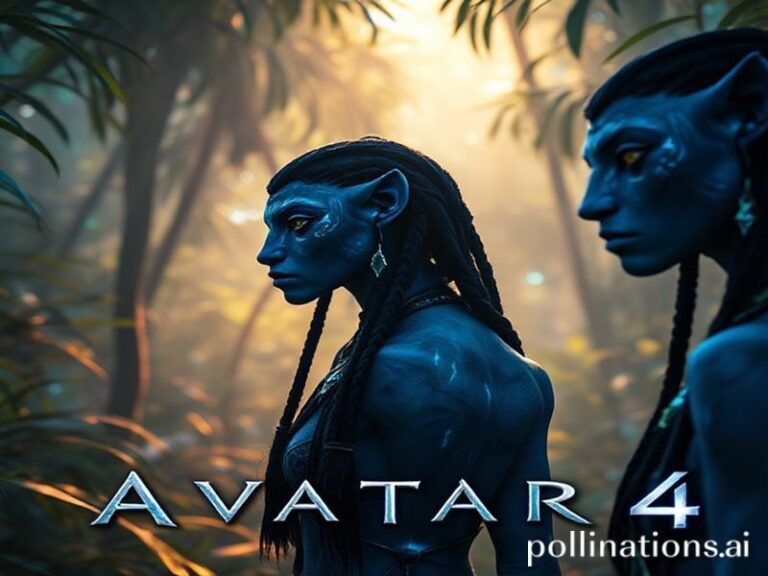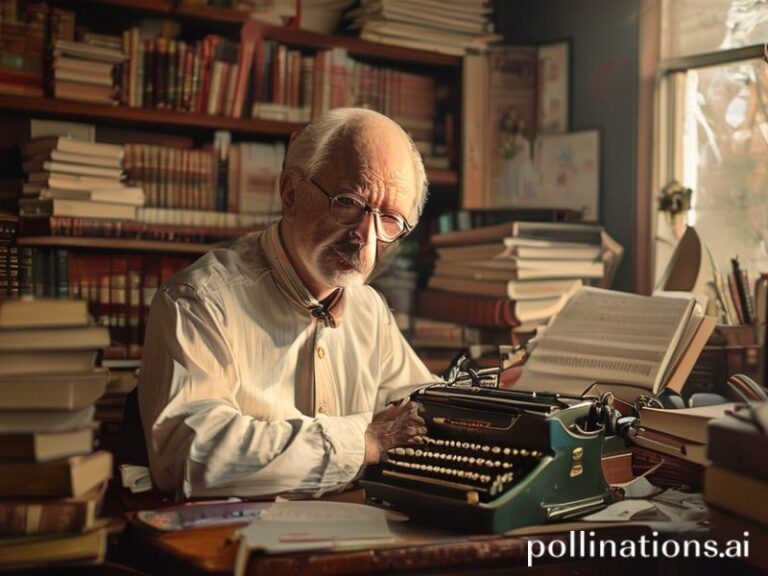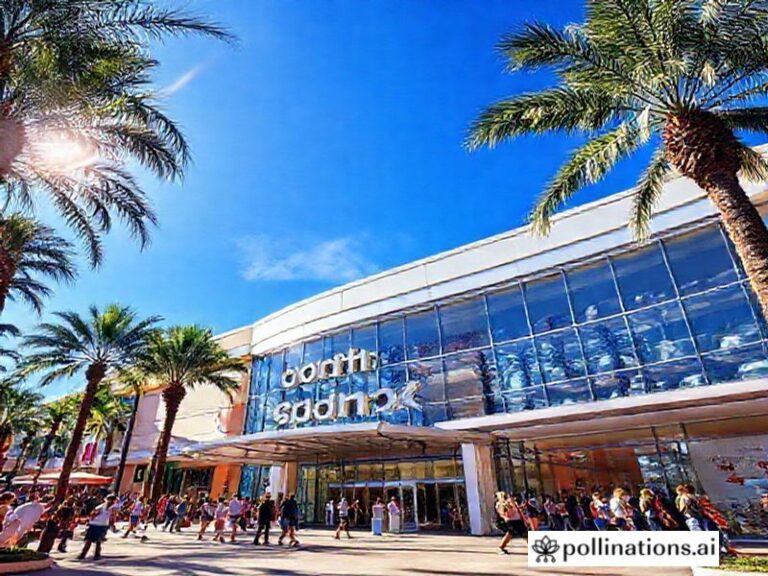Sinclair Goes Global: How One Corporate Name Became the World’s Favorite Anxiety Mirror
The Curious Case of Sinclair: How a Three-Syllable Name Became a Global Rorschach Test
By L. Marlowe, International Correspondent, Somewhere Over the Mid-Atlantic
PARIS—To the average European sipping an €8 espresso, “Sinclair” sounds like the brand of an in-flight magazine you pretend to read while calculating carbon offsets. To a North American, it evokes either a late-night anchor with the thousand-yard stare or the company that signs that anchor’s checks. In Seoul, my taxi driver assumed “Sinclair” was the latest K-pop sub-unit. The fact that all three reactions are simultaneously wrong and perfectly reasonable is precisely why the phenomenon deserves a dispatch.
Let’s be clear: Sinclair is no longer merely a surname, a broadcaster, or a 1970s home computer that doubled as a space heater. It is now a Rorschach blot onto which the planet projects its most fashionable anxieties—media consolidation, algorithmic propaganda, late-stage capitalism, and, for the romantics among us, the slow-motion car crash of objective reality itself.
The International Spread, or How to Franchise Panic
In the United States, Sinclair Broadcast Group owns or operates 294 television stations, reaching 40 percent of households. Americans learned this statistic the way one learns a jellyfish is venomous—after the sting. In 2018, anchors across dozens of markets were forced to recite the same script about “fake news” in eerie unison, like Stepford wives auditioning for Fox News. The clip went viral, Twitter did its usual impression of a Roman coliseum, and foreign correspondents filed breathless dispatches about “state-aligned media.” Meanwhile, state-aligned media from Moscow to Beijing issued press releases titled, “See, America does it too,” proving once again that hypocrisy is the only truly bipartisan language.
But Sinclair’s tentacles have quietly reached further. In Brazil, local stations licensed Sinclair’s “must-run” segments and dubbed them into Portuguese, ensuring that Brazilians could also enjoy diatribes on U.S. immigration policy between telenovela ads. In Nigeria, a telecom conglomerate briefly experimented with Sinclair’s centralized news-in-a-box model, until viewers noticed that weather reports referenced Lake Michigan with suspicious enthusiasm. Even the BBC—bastion of stiff-upper-lip objectivity—has been accused of borrowing Sinclair’s cost-cutting playbook, axing regional bureaus and replacing them with centralized “content hubs.” Translation: one underpaid producer in London now decides what passes for local news in Glasgow, Cardiff, and Belfast, a geographical feat previously achieved only by the British Empire.
The Algorithmic Afterlife
The genius of Sinclair lies not in owning transmitters but in perfecting the art of plausible deniability. Anchors can claim editorial independence while corporate headquarters emails them prefab segments titled “Terror Alert Desk” faster than you can say “Sponsored Content.” It’s franchised fear, McDonald’s with a body count. And because the segments are distributed digitally, they metastasize across YouTube, Facebook, and WhatsApp like a chain letter from hell. By the time fact-checkers finish debunking tonight’s immigrant caravan panic, tomorrow’s caravan is already loading the meme cannon.
Global takeaway: you no longer need to own the printing press; you merely need to own the panic button.
The Existential Punchline
Here’s the cosmic joke: the same week Sinclair was caught scripting local outrage, Netflix released a documentary series celebrating citizen journalism in Myanmar. The irony was lost on no one except the algorithm, which recommended both titles under “Because you watched Democracy Dies in Darkness.” Somewhere in Silicon Valley, an engineer updated a spreadsheet labeled “Engagement Metrics vs. Civilizational Collapse” and concluded the correlation was “statistically significant but monetarily delightful.”
Conclusion: A Name to Remember, Preferably Before It Remembers You
Whether Sinclair ends up as a footnote in media textbooks or the prologue to Fahrenheit 451: The Series depends largely on whether regulators decide that 40 percent market share is still “competitive.” Spoiler: they will, and the public will respond by binge-watching dystopian dramas that suspiciously resemble the evening news. In the meantime, the name “Sinclair” has achieved the rare feat of transcending borders, languages, and ideologies to become a universal shorthand for “we’re probably screwed, but at least the graphics package is slick.”
So the next time you hear “Sinclair,” don’t ask what it is. Ask what you want it to be. The answer will tell you more about your own geography, politics, and Netflix algorithm than any exposé ever could. And if that thought unsettles you, relax: there’s a 24-hour Sinclair station somewhere ready to tell you why you shouldn’t worry. Just don’t expect the weather report to match what’s outside your window.







